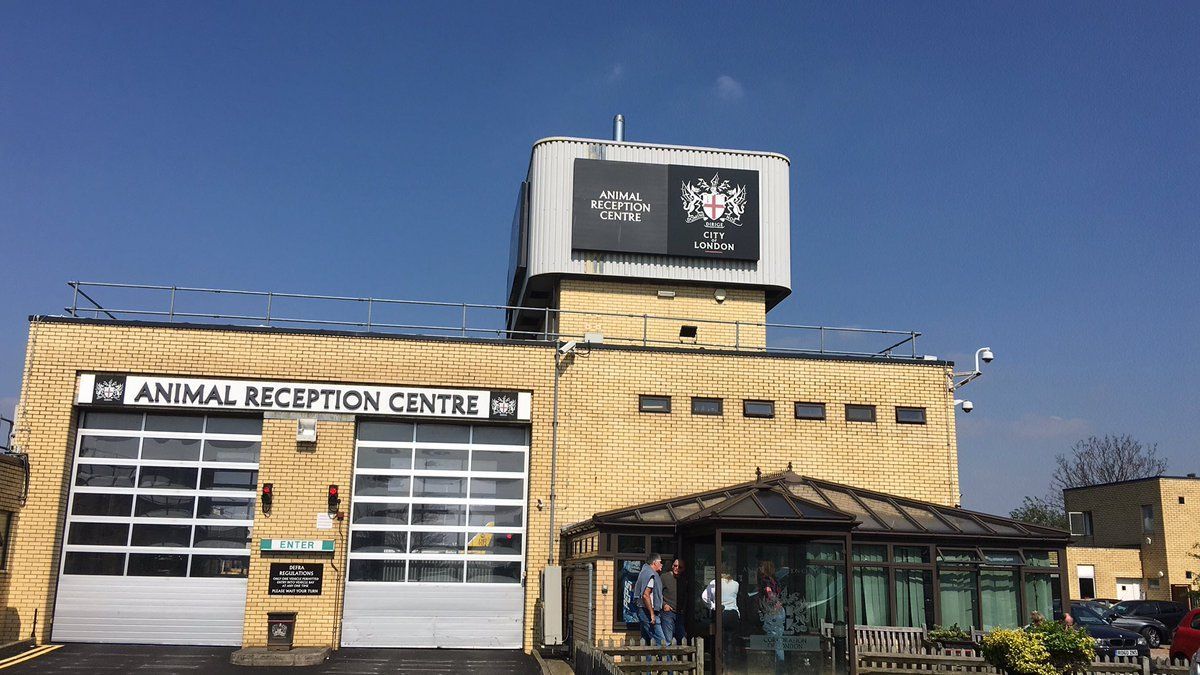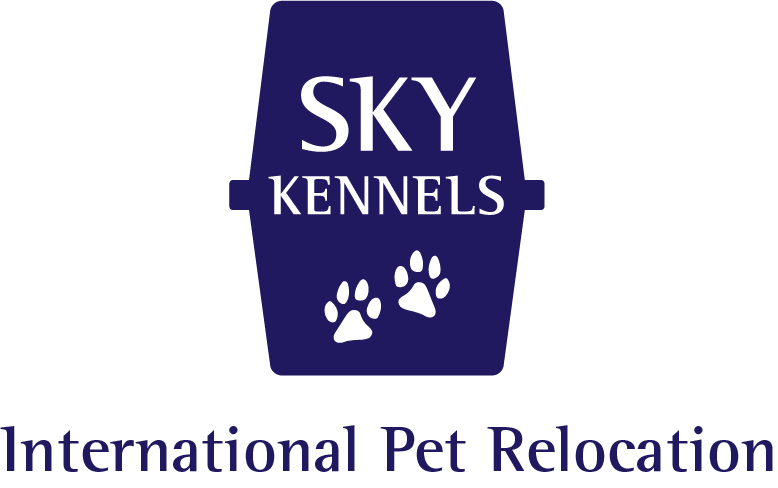Imports
Sky Kennels make the process so much easier
There are only 5 UK airports designated as Border Inspection Posts - London Heathrow, Gatwick, Manchester, Edinburgh and Glasgow, so you have to arrive into one of those and must travel with an approved airline on that route.
The Details
The Process
Importing pets to the UK is a simple process. The regulations differ slightly depending where you are travelling from, but as long as the veterinary preparation is done correctly, there is now no requirement for Quarantine.
The UK Govt has mandated that all pets arriving in to the UK by air, must arrive as manifest cargo, i.e. travel in the pet cabin, not the passenger cabin and as cargo, not Excess Baggage and you must engage a licenced Customs Agent to complete the Customs clearance process.
There are only 5 UK airports designated as Border Inspection Posts, i.e. that are allowed to receive pets - London Heathrow, Gatwick, Manchester, Edinburgh and Glasgow, so you have to arrive in to one of those and must travel on an approved airline on that route, i.e. an airline that has been approved by DEFRA to carry pets in to that airport. Not all airlines are approved to carry pets in to all 5 airports.
Arrival
On arrival your pet will be collected from the aircraft and taken back to the Animal Reception Centre (ARC). As soon as the pets arrive at the ARC, they are taken out of their sky kennels and put in to the kennels/cattery there. At Heathrow, the dogs have heated indoor areas with a nice bed and an external run in each kennel, so they’ll have plenty of space to get out, stretch their legs, get some fresh air, use the facilities and have a good old bark at everyone else that is in there! Cats are checked in to the cattery with a comfy bed, a litter tray and a climb pole/shelves, so they too can have a stretch and look out of the windows.
All pets are offered a small meal (wet food unless there is food attached to the crate) and water as soon as they are settled in to their accommodation. This is where your pet waits until their paperwork is checked and approved for entry and the Customs clearance process is complete.
Due to the strict rabies control, it is not possible for us or you to visit your pet during this time, but the staff at the ARC are very experienced and take great care of them. It is possible for pets from the same family to share accommodation. If required you should state which pets are able to share on the ARC form. You should also list any medications to be administered on arrival.
Clearance
Clearance can take a long time, so if you intend to collect your pet, we'd advise against getting there much too early to be honest. The facilities are great for the pets, but not so good for waiting humans – there are a few seats, a very old vending machine and no toilet!! We will call you and update you on their progress.
As long as your pet is travelling within 5 days of you, either before or after, then their arrival is treated as a non-commercial arrival. If there is more than 5 days between your and their arrival, then it is treated as a Commercial arrival and they will be checked by DEFRA on arrival, rather than just the ARC staff.
Please note that currently Manchester does not have DEFRA staff present at the airport and so cannot handle Commercial arrivals. Heathrow is the only ARC with DEFRA staff permanently based there, all other BIPs have to book a visit from DEFRA. Inevitably DEFRA do charge an extra amount for checking Commercial paperwork.
With offices in London and Manchester, Sky Kennels Ltd can handle the Customs clearance for you at Heathrow, Gatwick or Manchester. Below are the different requirements based on origin, for pets travelling to the UK;
Please call us to discuss your pets arrival in to the UK.
Pets travelling from Approved Countries
Pets arriving in to the UK from approved countries just need;
- Microchip (implanted before the rabies vaccination)
- A valid rabies vaccination - more than 21 days old and if the initial vaccination, less than 12 months old. Please note that many 3 year vaccines require a booster within the first 12 months to actually be valid for 3 years.
- For dogs entering the UK, they must have a valid tape worm treatment containing praziquantel or an equivalent proven to be effective against the Echinococcus multilocularis tapeworm, given no less than 24 hours and no more than 120 hours (5 days) before your pet enters the UK. You do not need to treat your dog for tapeworm if your pet is entering the UK directly from Norway or Ireland.
Pets travelling from Unlisted Third Countries
When animals enter the UK from an unlisted third country, the following procedures must be carried out in the stated order:
- Animal is micro-chipped
- It is vaccinated against rabies (your pet must be vaccinated against rabies in accordance with the recommendation on the vaccine manufacturer’s data sheet).
- A blood sample is taken and sent to a European Union (EU) approved laboratory for testing. A list of approved laboratories can be found here: http://ec.europa.eu/food/animal/liveanimals/pets/approval_en.htm
- The blood sample must be drawn at least 30 days after the rabies vaccination is administered. If the required level of antibodies is reached, the animal may enter the UK 3 calendar months after the date that the sample was drawn, assuming that all other rules of the scheme are met. When calculating the waiting periods between vaccination and blood test, and between blood test and entry into the UK, the date that the vaccination or blood test was carried out is counted as day 0 and not day 1.
- The documentation required is either a third country official GB veterinary certificate. If your pet is successfully blood tested and issued with an EU pet passport before it leaves the EU to go to a Third country, the passport may be used to return to the EU up to the date the rabies booster vaccination is due. The three month waiting period, following the blood test, before returning to the EU will not apply (but all other rules still apply, including the requirement for the blood sample to be taken at least 30 days after vaccination). Please note that vaccination details and blood tests cannot be entered in the pet passport by a non-EU vet.
- You must obtain a Third Country GB veterinary certificate if you are returning to GB after the rabies vaccination recorded in the pet passport has expired.
- The document required is a Third country official GB veterinary certificate (annex I or annex IV depending on whether it is a Commercial or non-Commercial move). Your vet may need to contact the local authorities’ office to obtain the certificate and the required official endorsement.
- The certificate is valid for entry into the UK for 10 days from the date of endorsement.
- In addition to the certificate, a certified copy (signed and stamped by the veterinarian) of the following documents are required:-
- Identification of the animal (microchip certificate or letter from vet confirming microchip details) and vaccination record
- A copy of the official report, from the approved laboratory, on the results of the rabies antibody tests.
- The originals of these documents must be attached to the certificate and must travel with your pet.
For further information see this link –
Let us know how we can help you on your way!
Call us (it's nice to talk) or email and we'll respond as quickly as possible.




